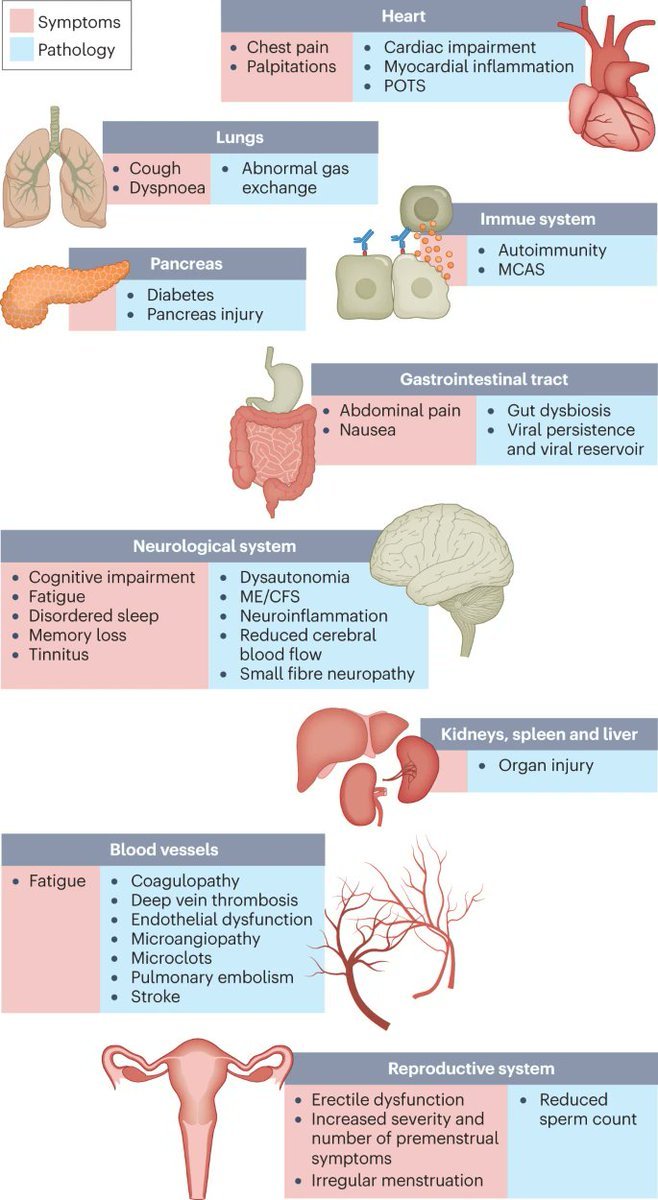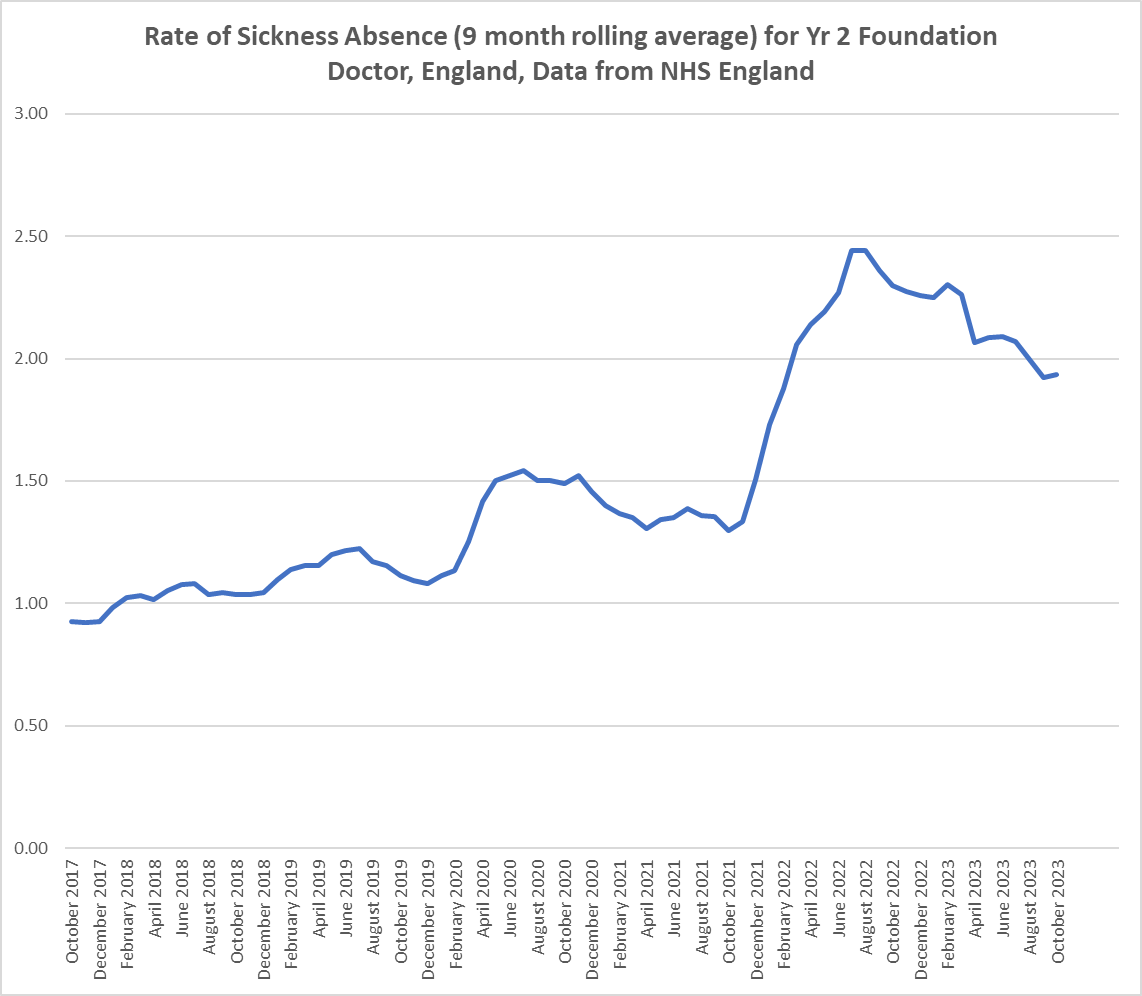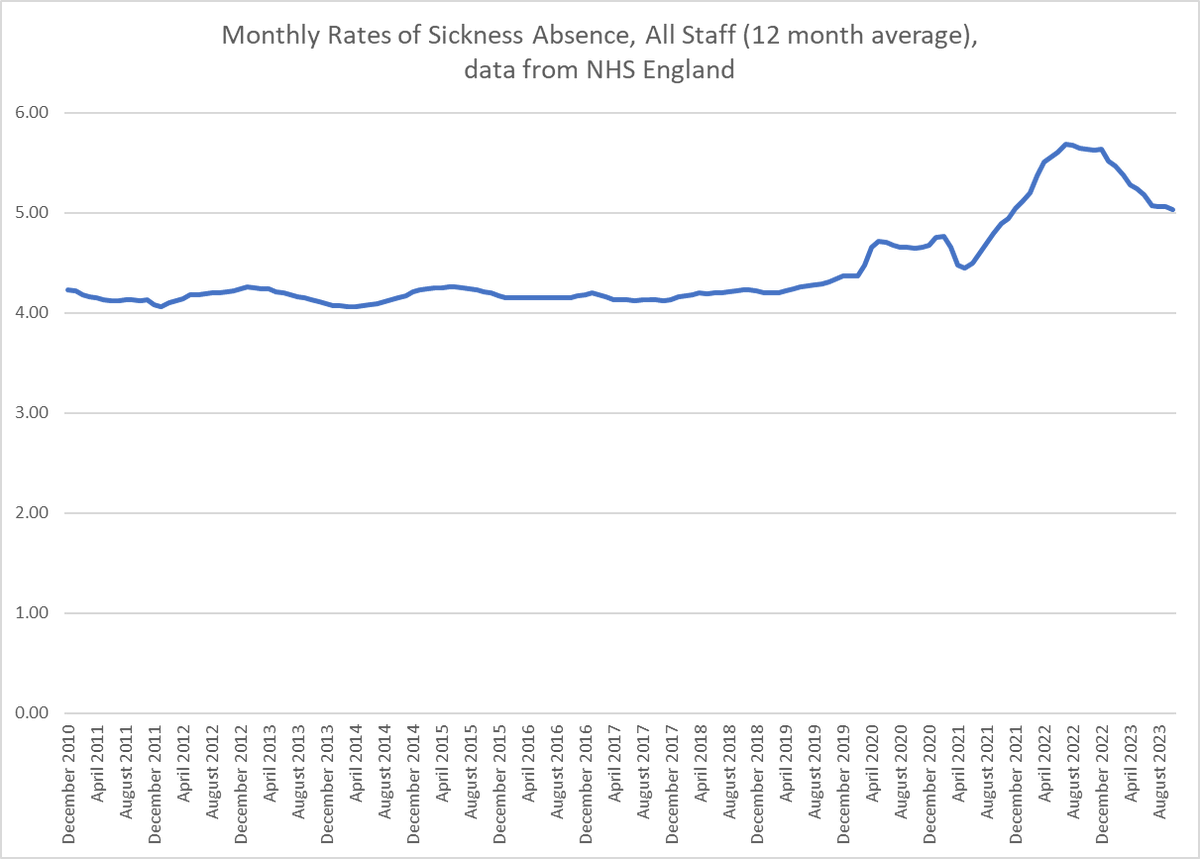Try thinking about it like this: there are three stages of Long Covid:
Stage 1 of Long Covid is the initial infection, when people may get symptoms of Long Covid for a couple of weeks.
During Stage 1 of Long Covid, the Covid virus starts off by replicating itself in the cells of your body, and your body is fighting to bring that process under control.
It's sometimes known as Acute Long Covid, or just Acute Covid.
People in Stage 1 may get a cough, runny nose, headache, upset stomach, loss of smell, fever, fatigue, muscle aches, dizziness, racing heartbeat, breathlessness, or other symptoms, or all these symptoms, or absolutely none at all.
Some people who get it might write off Stage 1 of Long Covid as just a cold.
Sometimes people don't even realise they have Stage 1 of Long Covid at all.
But Stage 1 of Long Covid isn't always mild. People can die from it.
So far, it has probably caused just under thirty million deaths, making Stage 1 Long Covid one of the deadliest plagues in the history of humanity within its first four years.
In the UK alone, Stage 1 of Long Covid has caused over one million hospitalisations, and two hundred thousand deaths.
There is some good news: Stage 1 of Long Covid is now less likely to cause severe illness, hospitalisation, and death.
Exposure to vaccines (that are very safe compared with infections) and previous infections (that can be very harmful) has helped many people's immune systems to handle the virus more carefully and effectively.
But the risk of Stage 1 of Long Covid still remains. In the last month here in England there have been over a thousand official Stage 1 deaths despite hospitals only testing a small fraction of admissions with Stage 1 Long Covid.
In 2023, at least 20% of short term sickness absence in the UK civil service was caused by Stage 1 Long Covid. Peaks of sickness absence in schools, healthcare, industry, and every sector coincide precisely with the prevalence of Stage 1 Long Covid.
Stage 1 also elevates the risk of illness and death from conditions other than respiratory ones.
The British Heart Foundation writes about the elevated risk of heart attack, stroke, blood clots, deep vein thrombosis, and more, that starts within a week of Stage 1 commencing. bhf.org.uk/informationsup…
Stage 1 of Long Covid leads directly into Stage 2 of Long Covid for many people who are infected.
In Stage 2, the body has stopped the initial emergency phase of fighting the virus.
The virus may be replicating in cells in the harder to reach parts of heart, lungs, gut, organs, blood vessels, lymph system, brain, but the body has switched from the generic responses that are rolled out for all infections, and focused its response to a more tailored approach.
And in Stage 2, the body is also left with the direct damage of Stage 1, when the virus was reproducing out of control.
It's not entirely easy to define where Stage 1 ends and where Stage 2 begins, just as it is going to be hard to define where Stage 2 ends and Stage 3 begins. Stage 2 is perhaps best defined by 'ongoing symptoms'.
Many people find that the symptoms they experience in Stage 1 Long Covid last longer than that first couple of weeks. Long Stage 1 Long Covid, if you will. It's the 'not getting better yet' phase.
So persisting loss of smell, persisting fatigue, persisting cough, persisting high heart rate, persisting lots of things.
Many many people suffer Stage 2 Long Covid after suffering Stage 1 Long Covid. Symptoms persist for a staggering number of people.
This can be a stage of significant danger. The elevated risk of the other conditions mentioned by the British Heart Foundation remain elevated for an extended period.
But Stage 2 Long Covid starts to give way to Stage 3 Long Covid.
Stage 3 Long Covid is *new symptoms*.
Now, you may think that it seems unlikely that a virus could still be causing new symptoms months after the initial infection.
Yes, if you're comparing Long Covid with a cold, then that it is unlikely. Common colds don't seem to cause that many symptoms months after the infection. Most people's bodies seem to deal with them effectively.
But there are many viruses that cause symptoms months, years, even decades after infection.
Some famous ones would be Herpes Simplex Virus, Varicella Zoster Virus (Chickenpox), Epstein-Barr Virus (EBV, Glandular Fever, Mono), Cytomegalovirus, and Human Immunodeficiency Virus (HIV). summahealth.org/flourish/entri…
They can all cause long term problems that aren't immediately obviously linked to the first stage of their infections. The problems they cause can appear in different ways at different times in different circumstances.
EBV can lurk under the surface for years before re-surfacing when your immune system is under attack or damaged or run down, or later even cause cancer.
HIV famously steadily reproduces in the background gradually destroying your immune cells from within, wiping out your body's ability to fight infection and regulate its own balance of growth and decay.
It took decades of study for people to understand these effects.
Stage 1 Long Covid can now look quite like Stage 1 of some of those other diseases, because most of Stage 1 is actually your body reacting to the infection, rather than the damage caused by the infection itself.
In fact, just like Stage 1 Long Covid, you might not even know you've picked up some of those infections above until the repercussions appear far later.
So Stage 3 Long Covid is delayed effects, delayed damage, delayed repercussions, appearing in any part of the body.
Here's a chart just touching on a few of the problems scattered throughout the body, from a study detailing the effects throughout multiple body systems.
nature.com/articles/s4157…

nature.com/articles/s4157…

And there are multiple causes for these delayed effects, that manifest differently in different groups of people.
Because Long Covid in Stage 1, Stage 2, or Stage 3 can affect every system in the body, it can appear dramatically different from person to person.
And because Stage 3 Long Covid can be the result of multiple different mechanisms - the Long Covid virus can keep replicating inside you all the way from Stage 1 to Stage 3. That replication can cause damage to cells.
Your body can attack itself trying to eradicate those persisting replications, or even just because the Stage 1 infection switched on the process where your body starts to attack itself.
Stage 3 Long Covid can manifest as big or tiny clots in the veins. It can manifest as nerve damage. It can manifest as inflammation *anywhere* in the body. It can manifest as reduced cognitive function.
Absolutely any process of the body can be dysregulated by Long Covid. Metabolic disorders, musculoskeletal problems, mental health, neurological problems.
One of the most common problems that plagues both Stage 2 and Stage 3 is POTS. Dysautonomia, the body losing its ability to regulate some of the basic automatic functions like heart rate, blood pressure, balance.
That on its own is a nightmare without any of the other dozens of problems.
A lot of people who experience Stage 1 Long Covid are lucky, and don't enter Stage 2. It's hard to tell how many that is.
Lots of people have lingering effects of the first stage of Long Covid, but if you measure the different groups of people with different combinations of symptoms, you get very different numbers.
And, again, plenty of people who enter Stage 2 don't go on to enter Stage 3.
But a lot of people who are developing new unusual conditions after their Stage 1 Long Covid don't even realise that the new conditions are developing as a direct result of the infection.
And then some of them are getting reinfected again. You don't just move from Stage 1 to 2 to 3.
Back into Stage 1 and the active rapid replication phase and intense damage and intense battle between body and virus. Then back into the lingering symptoms, then back into the phase of newly developing symptoms.
And different variants of Covid have different biochemistry, so you may have shrugged off one Stage 1 Long Covid episode, but get triggered by the next.
The science seems to suggest that with every incidence of Stage 1 Long Covid, you have an accumulating chance of developing Stage 2 and Stage 3 Long Covid.
But we just don't know where this is going to go over the next year, five years, ten years.
Indefinitely repeating episodes of Stage 1 Long Covid really don't seem like a good idea to me.
And the cause of Stage 3 Long Covid?
It's Stage 1 Long Covid.
It's Stage 1 Long Covid.
If you can avoid Stage 1 Long Covid, then you have pretty much eliminated the risk of Stage 3 Long Covid.
Long Covid. Stage 1 when you catch it. Stage 2 when it lingers. Stage 3 when it causes new problems.
Long Covid 123.
• • •
Missing some Tweet in this thread? You can try to
force a refresh







